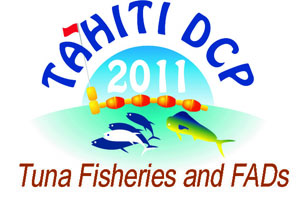Benefiting from Innovations in Sustainable and Equitable Management of Fisheries on Trans-boundary Tuna's in the Coral Triangle and Western Pacific (BESTTuna)
1 : Aquaculture and Fisheries Group, Wageningen University
(AFI-WUR)
PO Box 338 6700AH Wageningen The Netherlands -
Pays-Bas
2 : Environmental Policy Group, Wageningen University
* : Corresponding author
Postbus 8130 6700 EW Wageningen The Netherlands -
Pays-Bas
The sustainability of the tuna fisheries in the Western Pacific is increasingly questioned and draws attention to complex ecological, social and economic trade-offs. All nations increase their fishing effort on underexploited skipjack stocks using purse seiners on Fish Attraction Devices (FADs), which leads to continued pressure on juvenile yellowfin and bigeye tuna. Equity problems exits where distant water fleets have access to an estimated 60% of the region's tuna catch, while juvenile and skipjack fisheries caught by domestic fleets remain important for local food security and economies. Reinvesting wealth from tuna fishing accruing to national economies in sustainable management has proven difficult given the high economic stakes of distant water fleets. A series of innovative approaches to management have emerged in the form of market-based governance arrangements, including sustainable sourcing policies by brands and retailers, the promotion of sustainable consumption through third-party certification schemes (MSC), and fisher-led stock allocation schemes. There is little understanding of how these approaches can steer tuna fisheries towards sustainable practices and reduced fishing pressure. The BESTTuna programme explores this in six sub-projects by focusing on the ecology and fisheries of the three tuna species in their interaction with FADs; the composition, behavior and interests of different fishing fleets; the incentive structure and economic and social relations of related market actors; and the response of state and intergovernmental fisheries management arrangements to new market-based mechanisms. (1) two PhDs will investigate habitat choice of juvenile tuna in relation to local ecosystem productivity, and the socio-technical relationship with fishing strategies and tactics related to FADs; (2) three PhDs will analyse and model the capacity of government and inter-governmental scientific and regulatory regimes to adaptively manage tuna fisheries given trade-offs between access rights and market demand for sustainable fishing practices; (3) two PhDs analyse the incentive structures for fishers targeting juvenile tuna for domestic and international canned markets, and the influence by ‘upstream' chain actors in the global canned tuna value chain; (4) two PhDs and a Postdoc will review and model the different institutional and financial designs of alternative resource settings and assess the relevance of these designs for tuna fisheries; (5) a PhD explores the cross-cutting issue of new informational challenges across the various governance arrangements; (6) a Postdov will bring the various sub-projects together to theorize on incentivized management arrangements. The programme will run for five years.

 PDF version
PDF version
